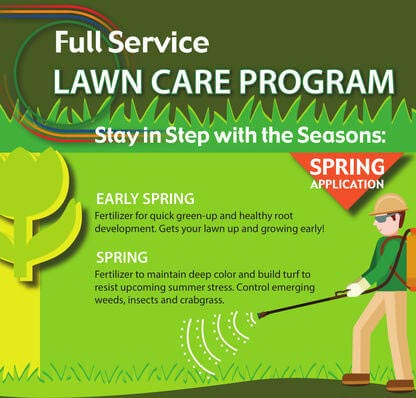Spring is the best time to care for your lawn. The weather is warming up, and your grass is ready to grow. Here are some essential spring lawn care tips to keep your lawn healthy and green.
1. Rake Your Lawn
Raking is the first step in spring lawn care. It helps remove leaves, dead grass, and debris. Raking also loosens the soil and lets air reach the roots. This helps the grass grow strong and healthy.
2. Aerate the Soil
Aerating your lawn is very important. It helps the roots get air, water, and nutrients. You can use a garden fork or a lawn aerator. Aerate the soil when it is moist but not too wet.
3. Test the Soil
Testing the soil is a crucial step. It tells you the pH level and nutrient content. You can buy a soil test kit from a garden store. Follow the instructions to get accurate results.
4. Fertilize the Lawn
Fertilizing in the spring helps the grass grow. Choose a fertilizer that suits your soil type. Follow the instructions on the package for the best results. Do not over-fertilize, as it can harm the grass.
5. Seed the Bare Spots
Bare spots can make your lawn look unattractive. Reseed these areas to make your lawn lush. Use a rake to loosen the soil before seeding. Water the seeds regularly until the grass grows.
6. Water Properly
Proper watering is essential for a healthy lawn. Water the lawn early in the morning. This helps prevent diseases. Water deeply but less often. This encourages deep root growth.

Credit: senske.com
7. Mow the Lawn
Mowing is an important part of lawn care. Do not cut more than one-third of the grass height at a time. This helps the grass stay strong and healthy. Keep your mower blades sharp for a clean cut.
8. Control Weeds
Weeds can take over your lawn if not controlled. Use a pre-emergent herbicide to prevent weed seeds from sprouting. Pull out any weeds that appear. A healthy lawn can also crowd out weeds.
9. Edge the Lawn
Edging gives your lawn a neat look. Use a lawn edger to trim the grass along walkways and flower beds. This also prevents grass from spreading into unwanted areas.
10. Mulch the Grass Clippings
Mulching returns nutrients to the soil. Use a mulching mower or a mulching attachment. This helps the grass grow stronger and healthier.
11. Address Lawn Pests
Lawn pests can damage your grass. Check for signs of pests regularly. Use natural or chemical treatments to control them. A healthy lawn is less likely to be affected by pests.
12. Maintain Your Lawn Equipment
Well-maintained equipment makes lawn care easier. Clean and sharpen your mower blades. Check other tools and replace any that are worn out. This ensures efficient and effective lawn care.

Credit: www.lawnconnection.com
13. Plan for the Future
Spring is a good time to plan for the future. Think about any changes you want to make to your lawn. Consider adding new plants, flowers, or garden features. Planning ahead can make your lawn even more beautiful.
14. Enjoy Your Lawn
Finally, take time to enjoy your lawn. A well-cared-for lawn is a great place to relax and play. Spend time outdoors with your family and friends. Enjoy the beauty of your hard work.
Frequently Asked Questions
What Is The Best Time To Fertilize My Lawn?
Early spring is ideal for fertilizing. It helps promote healthy growth.
How Often Should I Water My Lawn?
Water your lawn 2-3 times per week. Early morning is best.
Should I Aerate My Lawn In Spring?
Yes, aerating in spring helps improve soil health and grass growth.
How Can I Prevent Weeds In My Lawn?
Apply a pre-emergent herbicide in early spring. This prevents weed seeds from germinating.
Conclusion
Spring lawn care is essential for a healthy and beautiful lawn. Follow these tips to keep your lawn green and lush. With a little effort, you can have the best lawn in the neighborhood.
